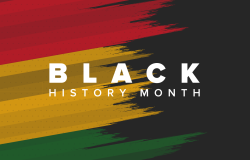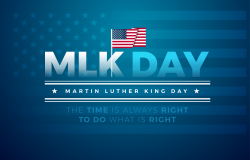Pantheon
Civil Rights Queen: Constance Baker Motley and the Struggle for Equality
In her new book, Civil Rights Queen, Tomiko Brown-Nagin examines the life and work of pathbreaking lawyer, politician and judge, Constance Baker Motley. The counterpart to Thurgood Marshall—”Mr. Civil Rights”—Motley litigated hundreds of cases that remade American law and society, including Brown v. Board of Education. She also desegregated flagship public universities in Florida, Georgia, and Mississippi, and represented Dr. Martin Luther King, Jr., and the Birmingham Children’s Marchers—helping rescue the pivotal campaign that gave rise to the Civil Rights Act of 1964. Then, as the first black woman federal judge, Motley decided landmark cases that, among other things, implemented the Civil Rights Act. Yet she is not nearly as well known today as her impact on public life would suggest. Brown-Nagin argues that Motley’s gender, and scholars’ tendency to divide the civil rights movement into discrete and antagonistic legal and direct-action wings, help explain why. Looking at the civil rights movement and the legal profession through a woman’s eyes, Brown-Nagin explores themes such as law versus politics as pathways to reform, diversity in the Black experience, identity and judging, and the “price of the ticket” when outsiders become insiders in the power structure.
Overview
In her new book, Civil Rights Queen, Tomiko Brown-Nagin examines the life and work of pathbreaking lawyer, politician and judge, Constance Baker Motley. The counterpart to Thurgood Marshall—”Mr. Civil Rights”—Motley litigated hundreds of cases that remade American law and society, including Brown v. Board of Education. She also desegregated flagship public universities in Florida, Georgia, and Mississippi, and represented Dr. Martin Luther King, Jr., and the Birmingham Children’s Marchers—helping rescue the pivotal campaign that gave rise to the Civil Rights Act of 1964. Then, as the first black woman federal judge, Motley decided landmark cases that, among other things, implemented the Civil Rights Act. Yet she is not nearly as well known today as her impact on public life would suggest. Brown-Nagin argues that Motley’s gender, and scholars’ tendency to divide the civil rights movement into discrete and antagonistic legal and direct-action wings, help explain why. Looking at the civil rights movement and the legal profession through a woman’s eyes, Brown-Nagin explores themes such as law versus politics as pathways to reform, diversity in the Black experience, identity and judging, and the “price of the ticket” when outsiders become insiders in the power structure.
Tomiko Brown-Nagin is dean of the Radcliffe Institute for Advanced Study at Harvard University, the Daniel P.S. Paul Professor of Constitutional Law, and professor of history at Harvard. Her 2011 book, Courage to Dissent: Atlanta and the Long Civil Rights Movement, explored the civil rights movement through the vantage point of interactions between national and local lawyers and activists. It won six awards, including the Bancroft Prize.
The Washington History Seminar is co-chaired by Eric Arnesen (George Washington University and the National History Center) and Christian Ostermann (Woodrow Wilson Center) and is organized jointly by the National History Center of the American Historical Association and the Woodrow Wilson Center's History and Public Policy Program. It meets weekly during the academic year. The seminar thanks its anonymous individual donors and institutional partners (the George Washington University History Department and the Lepage Center for History in the Public Interest) for their continued support.
Speaker Quotes
Tomiko Brown-Nagin
“When Motley was appointed to the Bench, women’s rights groups and civil rights groups were overjoyed. They thought that with one of their own on the bench she would be able to achieve tremendous things, sort of like when she was a gladiator in the courtroom as a lawyer. She was one of the first to, quote, ‘diversify’ the bench and I want to consider—and have considered in this book—what she was able to achieve over her 39 years on the bench. I think there are risks and rewards to the project of diversifying the bench and I use her life to talk about it.” [11:02- 11:39]
“Overall, I conclude that Motley was not a revolutionary on the bench. She was more of a workplace reformer, unlike when she was a civil rights lawyer where she was a gladiator. And yet, her story helped to demonstrate the value of symbolism to the legitimacy of public institutions. She argued in favor of the appointment of women and people of color judges on this basis, not because she said that they would do something totally different than white men but because the appointments would demonstrate that government is fair. In a way, I think that the overarching theme of the book is the paradox of change. How her ascent to the bench is important, but if we are seeking—as so many people do—to draw a straight line between personal success and group outcomes then it’s disappointing, and yet, I think that the story of her breakthroughs in so many ways does underscore an anti-discrimination imperative.” [16:50-18:08]
“Her sense of intellectual engagement and excitement is very clear… in terms of Brown (Brown v. Board of Education), she litigated all of these cases that implemented Brown. As a judge, she was not dealing with school desegregation cases but did have a Title Seven case, involving teachers—black and Latino teachers—who argue that certification tests were discriminatory and Motley ultimately rules against them, she is reversed by the second circuit. I use it to illustrate just how far she had gone from her days as a civil rights lawyer. [1:13:41-1:14:26]
H. Timothy Lovelace, Jr.
“As I started reading the book, I began to think about these questions of judicial merit, of judicial diversity, of objectivity, and how they’re shaping these debates today—and they certainly shaped Constance Baker-Motley’s nomination and confirmation, and we’ll get there in just a moment. So, in my comments today, I really want to do three things and tell you why this is an incredibly important book. The first is I’ll talk about how this book really challenges our understandings of the civil rights historiography and this is just different methodologies and approaches to the civil rights scholarship. Second, I’ll talk about major themes in the book and the importance of those themes in the book. And then finally, I’ll discuss the rule of law and lawyers in social and legal change.” [20:14-21:12]
“We also see the power of the book’s gender analysis. Black women were only a fraction of a percentage of America’s bar in the mid-twentieth century. And so, in this way, we might think about Constance Baker Motley as being nearly invisible. But, as this wonderful book shows us, she was also hyper visible. She was a black woman, who was a lawyer, who was on the national—and even international—stage, at the forefront of the civil rights struggle. And that here, she was able to negotiate relationships with powerful men in the civil rights movement. [25:34-26:19]
“This book really shows us the power of protests on law. This really builds from courage to dissent. One of the major themes that emerges is that activists working with lawyers—and this was often a tense relationship—helped to create the context for political change. In this book, we see this theme really develop in Constance Baker Motley’s character. She’s a movement lawyer. She has a very different style of lawyering from someone like Thurgood Marshall, who actually opposed the sit-in movement initially. She’s working very closely in places like Birmingham, where there are incredible demonstrations, and she understands that her role as a lawyer is not to supplant civil rights activists but rather to support civil rights activism.” [27:44-28:35]
Risa Goluboff
“A related and second theme that I wanted to explore in the context of how you, and Tim, and I all have, I think, historically approached legal history—and I think is a big theme in recent civil rights history—is the importance of lawyers… I feel like one of the things that I took away from the book was how you showed the importance of her role as a lawyer and how she was constrained… that her constraints on her as a judge seemed more significant than her constraints as a lawyer.” [47:14-48:29]
“All three of us [panelists] grew up on the importance of the social history of law, thinking about law really as a conversation about social history… and we’ve each of us moved in various ways from social history—generally—to the relationship, as Tim talked about, between social history and more formal forms of legal history and doctrinal history from above. For Tim, I think that has been more toward international law, legal processes, and treaties; For Tomiko, toward biography, in this book; and for me, toward the Supreme Court. And so as I read this, it really made me re-reflect on questions that I had when I was writing about the court.” [42:02-43:03]
Speaker

Tomiko Brown-Nagin
Panelists

Risa L. Goluboff

H. Timothy Lovelace, Jr.
Hosted By

History and Public Policy Program
The History and Public Policy Program makes public the primary source record of 20th and 21st century international history from repositories around the world, facilitates scholarship based on those records, and uses these materials to provide context for classroom, public, and policy debates on global affairs. Read more
Thank you for your interest in this event. Please send any feedback or questions to our Events staff.










